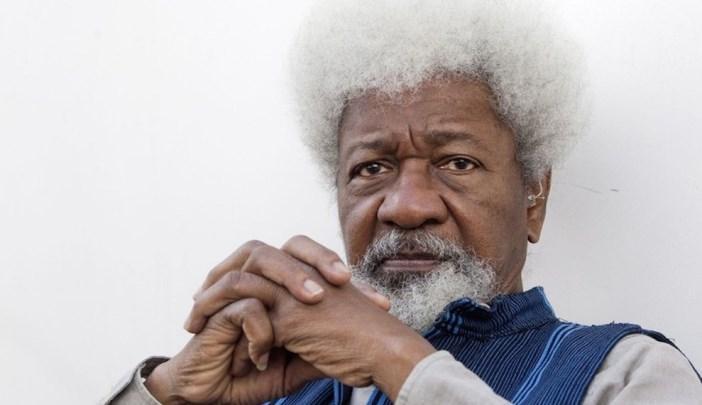Special Feature
Rethinking the concept of Bidi’a in Islam


By Najib Sani
Bidi’a or innovation has been a source of controversy and a cause of division and hatred among the Muslims community for centuries. It refers to anything innovated in Islam after the passing away of Prophet Muhammad (Sallallahu Alaihi Wa sallam).
Some section of Muslims especially the wahabists and salafists view bidi’a as the most detestable sin in islam, thereby waging wars against fellow Muslims they see as innovators in the religion. In some instances, they tag perceived committers of bidi’a as those who will automatically go to hell when they die. The proclaimed fighters of the bidi’a in some places kill innocent people and revolt against authorities, eg, the Boko Haram insurgents in Nigeria etc.
Notwithstanding the exaggeration on the impropriety of bidi’a, it was never mentioned anywhere in the Qur’an as a sin whereas other major sins were stated with their penalties in some places.
Some major sins according to the Qur’an, the only islamic book revealed by God are; polytheism, murder, fornication, theft, telling lies, drinking alcohol, etc but nowhere anything bidi’a was mentioned. This means it was an insignificant matter if God himself would overlook it in his whole book.
The question is; if bidi’a is a sin that leads to hellfire, is it fair for our creator not to explicitly condemn it or warn against it but punish those who do it? One of the attributes of God is fairness and justice, hence, he will never punish us for anything without admonition.
I am pretty sure some will say it has come in hadiths (Purported reports of the prophet’s speeches). But it is still indicating that it is not a serious matter like those that were unequivocally talked about in the Qur’an since it was not discussed throughout it. Anything that can take one to hell must have been told by Allah.
If you are still in doubt, let me clarify further. Qur’an was revealed to the prophet and written down by his companions. It was the only book he left behind. It was also the only compiled book his apostles passed down to the next generation. Hadiths were written about 100 years after the prophet by those who didn’t live with him or his companions, though they were attributed to the prophet.
Moreso, the writers had no permission from the prophet to write them and use them as religious documents like the Qur’an (This does not imply that I don’t believe in hadiths but I actually do not regard it like Qur’an because the writers were not ordained to write, they are all claims that have authentic and unauthentic reports as confessed even by many past islamic scholars).
Since the authors of hadiths did not live with the prophet and had no ordaination from God to write, there is tendency that they would not write them if they didn’t deem it fit to do so. This means we the subsequent generations might have lived and died without knowing hadiths including the one that condemns bidi’a. Does that mean God will still punish us for the bidi’a that was not found in the Qur’an he revealed to the prophet and had the authours of hadiths not written them since nobody asked them to write? Certainly, this can’t be done by the almighty who calls himself, the just.
Now, let’s analyse the two hadiths attributed to the prophet to have talked about the bidi’a. One of them says “Every innovation is a sin, and every sin leads to hellfire “. The second one says “Whoever innovates anything in our religion which is not original, it will be returned to him”. If we ponder on them, we will understand that the second one is more fair and comprehensive. Because it says if you do anything that is not commanded in the religion, you have no rewards. And this is not a problem because it doesn’t lead to torment by God. Moreso, it explicitly clarifies that the innovation has to do with religion. On the other hand, the first one says any innovation is a sin that leads to hellfire. And by it, no Muslim will escape it. Because it may include anything not obtainable during the time of the prophet such as the cars we use now as against horses, camels etc. If you think it is on religious things, I will ask where was that stated in the hadith and nobody can point it out.
Still, if you insist it is refering to innovation in Islam even though that particular hadith didn’t say so in its entirety, I will tell you that hadith books themselves are innovations because they were not available or used in the time of the prophet or his companions who lived with him. So is writing hadith book a sin that takes one to hell?
It’s apparent that no one including the purported anti-bidi’a crusaders believe in that hadith that says all innovations lead to hell, perhaps, that is why everyone has his own definition of it or adds commentary to it to help him escape from its trap. Some say bidi’a is what you do in anticipation of rewards from God but if you do not do it with any intention to be rewarded, it’s not bidi’a. Others say, bidi’a is when you claim that the innovated thing is an act of worship. But none can point where that hadith give such explanation.
With that, you will understand that every Muslim from the era of the companions of the prophet can never evade hellfire if we go by that hadith because Islam has witnessed tremendous innovations as life and time are naturally dynamic, and innovations are necessary to make things better and easy for the mankind.
Will God who is merciful send everyone to hell? If he won’t, then that means that hadith is not a word of the prophet who represented God. If you think the reporter of the saying is infallible then why can’t the hadith be used as it is without finding excuses to run away from the hellfire it says one will go to for performing inevitable bidi’as?
Unfortunately, none of their explanations was found in the hadith. Then how did they know that was what that hadith means? If you think all hadiths must be accepted by everybody, you are wrong. Even among the authours, there was no consensus. There are inconsistencies and variations in hadiths. Some of what Imam Bukhari, one of foremost reporters of hadiths wrote were not written by Imam Malik, the pioneer hadiths book writer. Some of the hadiths in Imam Muslim’s book were also not found in Bukhari or Malik’s book. Then later came other hadiths reporters like Tirmidhi, Abu Daud, Ibn Majah etc all of whom did not believe in some hadiths reported by their fellow reporters. That means, they too had reservations on some of the hadiths attributed to the exalted prophet though they were written by some of them. Then, it is obvious, everyone has the freewill to believe in the hadiths that makes sense to him. If it is a crime to do that, then why did Malik reject some hadiths believed by Bukhari, and Muslim didn’t accept some of what Tirmidhi reported? That reiterates the fact that hadith are not as authentic as Qur’an which is generally accepted by all the divides in the islamic religion. As such, not everything reported in hadiths should disunite the Muslim community, cause hatred or war as they are all suspected prophetic sayings.
Having said that, not every innovation is a sin and not all are good. There are those that can attract rewards if the act makes life and things easy for people. And anything that is not morally and by commonse right, can be a bad innovation. I need no documents to understand what is good or bad.
What I believe in is that, the consequences of bidi’a is that you may not be rewarded for it, if God is not pleased with it but actually its punishment cannot be burning in hellfire base on the copious reasons I cited including lack of its mention in the God’s revealed book, lack of general acceptance of the bidi’a in its actual concept by all the Muslims without adding untraceable explanations and excuses as well as the inevitability of life including religion without innovations. Definitely, God will not impose and punish us for what is Impossible to do away in our life. This is stated clearly in the Qur’an.
AFALA TA’AQILUN? (Won’t you reason?)
Najib can be reached via [email protected] or 08086352355
-

 Special Feature2 days ago
Special Feature2 days agoPainful exit of Raif Adekunle Adeniji and his legacy, by Prof. Adeyemi Adediwura
-

 Metro News2 days ago
Metro News2 days agoDavid Mark speaks on Benue killings
-

 Crime and Law2 days ago
Crime and Law2 days agoIGP condemns Plateau killings
-

 Crime and Law20 hours ago
Crime and Law20 hours agoChinese national breaks silence over viral video of cash exchange with Nigerian policemen
-

 Entertainment2 days ago
Entertainment2 days ago“It will expire” – TikToker Jarvis sparks buzz as she denies dating Peller
-

 Metro News18 hours ago
Metro News18 hours agoIGP felicitates with Christian community on Easter celebration
-

 Crime and Law17 hours ago
Crime and Law17 hours agoViral Video: NGO defends Police, questions Chinese intentions
-

 Sports2 days ago
Sports2 days agoUCL: Atiku hails Arsenal’s unity




























